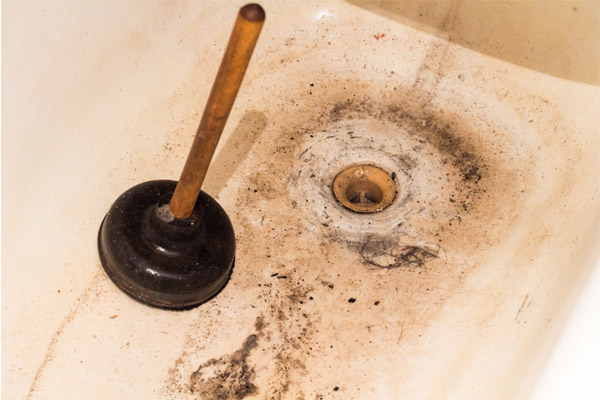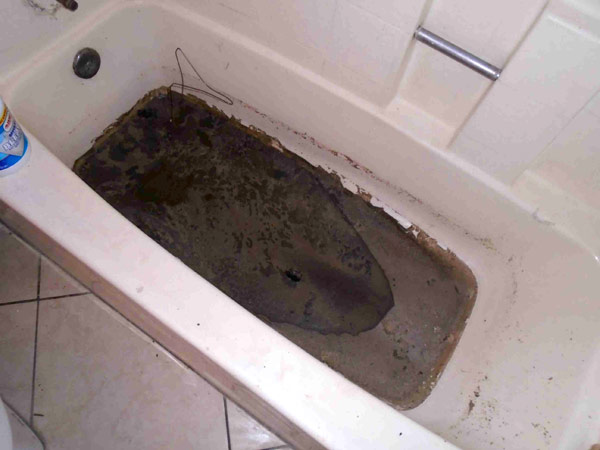Understanding the Causes of Effluent Backflow in the Bathtub
Understanding the Causes of Effluent Backflow in the Bathtub
Blog Article
They are making several good annotation related to Why is Sewage Backing Up Into My Bathtub? in general in the content directly below.

Sewage backup in the bath tub can be a stressful and unsanitary trouble for any kind of property owner. Not just is it troublesome, but it additionally postures severe health and wellness risks and indicates underlying problems with the plumbing system. Understanding why sewage is showing up through the bathtub is important for taking proper action to address the trouble efficiently.
Intro to the Concern
Common Factors for Sewer Back-up
Clogs in the Sewage System Line
Among one of the most usual reasons for sewage back-up is a blockage in the sewer line. This can happen due to the accumulation of particles, oil, or foreign items in the pipes, protecting against correct flow and creating sewage to support right into your tub.
Tree Origin Intrusion
Tree roots seeking moisture and nutrients can infiltrate sewer lines with small fractures or joints. With time, these roots can grow and increase, creating considerable damages to the pipes and resulting in sewage backup problems.
Comprehending the Issue
When sewage draws back up right into the bath tub, it's a clear sign of a problem with the drainage system. The wastewater that ought to be flowing far from your home is instead finding its back into your living space, which can cause considerable damage and health hazards.
Prospective Reasons
Several variables can add to sewer backup in the bathtub. From clogs in the sewer line to concerns with the plumbing framework, recognizing the root cause is essential for locating a service.
Aging Framework
Older homes might have dated plumbing systems that are more prone to deterioration, cracks, and damage. As pipelines age, they become much more vulnerable to leaks and clogs, increasing the possibility of sewage back-up cases.
Heavy Rainfall or Flooding
Throughout durations of heavy rainfall or flooding, the drain system may become overwhelmed with excess water, creating backups and overflows. This can result in sewer supporting right into bathtubs and various other fixtures inside the home.
Signs of Sewer Back-up
Foul Odors
Unpleasant smells emanating from drains pipes or fixtures, particularly in the bathroom, may show sewage backup issues. These odors are often solid and consistent, signaling an issue that requires prompt focus.
Slow Draining Fixtures
Tubs, sinks, and toilets that drain slowly or otherwise in any way could be experiencing sewage backup. If numerous components are influenced at the same time, it's likely that the concern stems from an usual factor, such as the main sewage system line.
Gurgling Sounds
Strange gurgling or gurgling noises originating from drains pipes when water is running elsewhere in your house are a measure of air caught in the plumbing system. This air accumulation can arise from sewage back-up and should be explored promptly.
Wellness Dangers Associated with Sewer Back-up
Contamination of Water
Sewer back-up can pollute the water in your home, presenting a major wellness danger to you and your family members. Direct exposure to contaminated water can cause intestinal issues, skin infections, and other diseases.
Mold Development
Wetness from sewage backup can develop perfect conditions for mold and mildew growth in your home. Mold spores can exacerbate breathing issues and create allergies in delicate individuals, making timely cleanup crucial.
Spread of Condition
Sewage contains damaging bacteria, viruses, and bloodsuckers that can trigger a range of illness, consisting of hepatitis, cholera, and gastroenteritis. Entering into contact with sewer or infected surface areas puts you in danger of infection.
Cleaning Up After Sewage Back-up
Sanitation Procedures
Extensively decontaminate and sterilize impacted areas after sewer back-up to get rid of harmful bacteria and prevent mold and mildew development. Usage suitable cleaning products and safety equipment to guarantee secure and reliable clean-up.
Remediation of Influenced Areas
Fix any type of damages to floor covering, walls, or components brought on by sewer back-up. Depending on the extent of the damage, you may require to change carpets, drywall, or various other products to restore your home to its pre-loss problem.
Immediate Actions to Take
Shutting Off Water
In the event of sewage back-up, it's vital to shut off the water supply to prevent further contamination and damage. Locate the major water shutoff valve in your house and shut it off up until the issue can be settled.
Getting In Touch With a Professional Plumber
Taking care of sewage backup is not a DIY task. Call a certified plumber with experience in dealing with sewage-related issues to assess the scenario and carry out necessary fixings or cleanups.
Staying Clear Of Contact with Contaminated Water
Up until the sewage backup is fixed, prevent contact with contaminated water to prevent the spread of bacteria and microorganisms. Use protective gear if you should be in the affected area and clean your hands extensively later.
Safety nets
Routine Maintenance of Sewer Lines
Set up regular inspections and maintenance of your drain lines to recognize and deal with possible issues before they intensify right into major troubles. This can consist of cleaning particles, checking for tree origin intrusion, and repairing any broken pipelines.
Setting Up Backwater Shutoffs
Consider mounting bayou valves in your plumbing system to prevent sewage from receding right into your home throughout durations of heavy rainfall or flooding. These shutoffs automatically close when water starts backing up, securing your residential or commercial property from contamination.
Correct Disposal of House Waste
Avoid purging anything other than toilet paper and human waste down the toilet to stop obstructions and obstructions in the drain line. Dispose of oil, oil, and other house chemicals effectively to decrease the danger of plumbing troubles.
Why is There Sewage Coming Up Through the Bathtub
Sewage in your bathtub is a major problem that can make you want to abandon the bathroom for good. You don’t have to. However, it is important to identify the source of the issue and take the necessary steps to resolve it in order to avoid any health risks and property damage. In this article, we will discuss what could be causing sewage to back up through your bathtub so you can take action quickly and effectively.
The Main Reason For Sewage Backup in The Bathtub
All the sinks and toilets in your home connect to different pipes that lead to the main sewer line. The sewer line then connects to the municipal sewer system. This connection works seamlessly on a daily basis, but there can sometimes be a problem with the main sewer line.
The most common cause of sewage backup is a clogged or blocked main sewer line. The main sewer line can be clogged due to the accumulation of debris, tree roots or grease buildup, or other materials. Another possible cause is a collapsed pipe. When this happens, your toilets and sinks won’t be able to drain properly. This is when sewage starts backing up through the bathtub. If the problem has been occurring for some time now, it might be time to consult with a plumber as there may be more severe damage that needs fixing.
How Can You Tell if it’s Coming From Your Sewer Line?
If you’re experiencing a sewage backup in your bathtub, then you can use a few simple methods to determine if it is coming from the main sewer line. First, try to unclog the tub drain with a plunger or an auger and see if that helps. If not, then inspect all of the drains in your house and check if there is any blockage in them. If some of the other drains are not working fine, then it’s likely the problem is with your main sewer line.
Common Signs of a Clogged Main Sewer Line
If you suspect that your main sewer line is blocked, then there are a few common signs to look out for. Frequent clogs in your home are a sure sign of a clogged sewer line. You can also check for slow drainage from all the plumbing fixtures.
Slow Drains
If you notice that it takes longer for your sinks and toilets to drain, then this could be a sign of a clogged main sewer line.
Frequent Clogs
Another common sign is that your drains or toilets become clogged almost all of the time. If this happens, then it could be a sign that the main sewer line is blocked.
Water Backup
Do you notice water or sewage coming back up from any of the drains in your home? If your answer is yes, you may have a clogged main sewer line.
Sinkholes
If you’ve noticed sinkholes in your yard or overflowing sewage from the ground, you may be facing a blocked sewer line issue.
Your Shower or Sink Makes Gurgling Noises
Have you noticed gurgling noises coming from your sink or shower lately? These are typically signs of a blocked sewer line and should be checked out immediately.
How to Prevent a Main Sewer Line Clog
Once you’ve identified that your main sewer line is clogged, it’s important to take steps to prevent it from happening again. The best way to do this is to avoid putting any solid material that can clog the drain, such as grease and other debris. You should also be mindful of what you flush down your toilet. In addition, you should schedule regular maintenance for your main sewer line. This will help keep it clear and free from clogs or backups.
What Should You do if You Notice Sewage Backing up Through The Bathtub?
If you’ve noticed sewage backing up through the bathtub, then it is important to call a professional plumber immediately. A plumber can inspect the situation and determine what the cause is, such as a blocked main sewer line. They will also be able to advise you on how best to fix the issue. In some cases, a simple drain cleaning may be all that is needed.
However, if the blockage is severe, then your plumber may need to use more advanced methods to clear the blockage.
No matter what, it is important to always call a professional plumber if you experience any kind of sewage backup. They will be able to assess the situation and provide you with a solution that is best for your home.
https://baylorinc.com/blog/why-is-there-sewage-coming-up-through-the-bathtub/

I'm just very excited about and I'm hoping you enjoyed the entire piece. Appreciated our piece? Please share it. Help somebody else find it. We appreciate reading our article about .
Call Today
Report this page